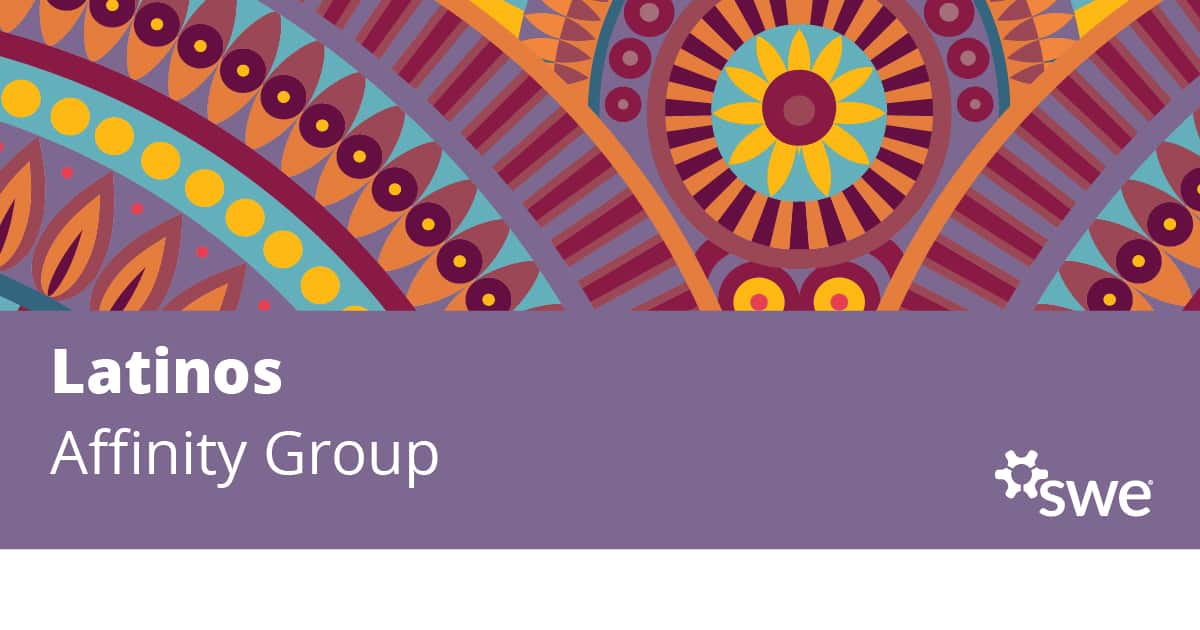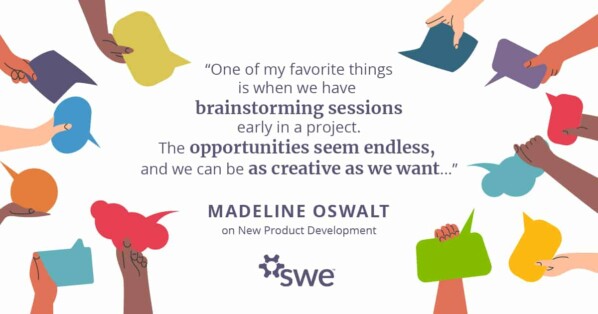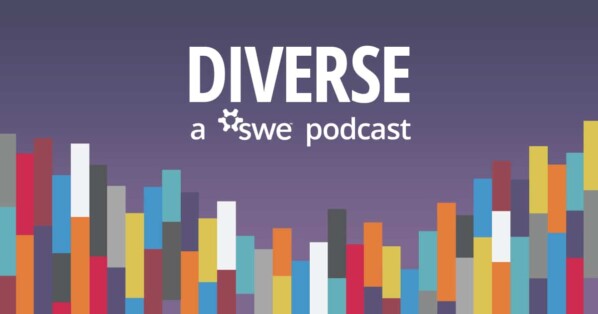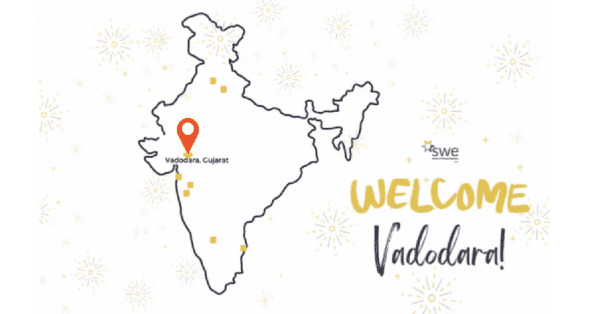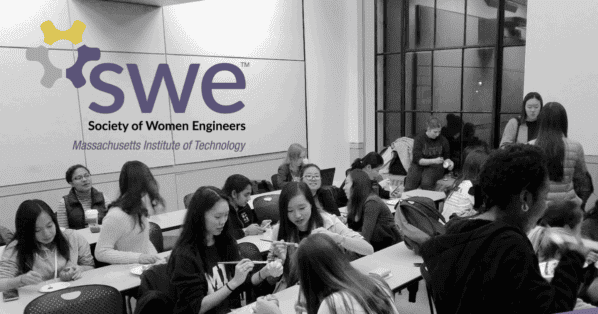I grew up in a very small, multi-generational apartment in a lower-middle class neighborhood in Southern California after immigrating with my family from Mexico City. My family and I moved in with my aunt and uncle and their four kids; my grandparents lived with us too; and although the rest of my mother’s six other siblings and their families didn’t live with us, they spent most of their time in the apartment with all of us. My dad had three jobs, my mom worked overnight, and my job as the big sister was to watch over my own sister. That first fall, my parents enrolled me in the elementary school across the street and my inability to speak the English language made me an outsider. Without friends, and being very shy, I found refuge in books and was lucky enough to find a brightly colored book about space. I fell in love and haven’t stopped thinking about what is out there ever since.
My love for all things STEM grew from that day forward, and I did everything in my power to reach my dreams of one day building my own satellites to explore the unknown. My parents teased me, asked me if I was going to be a tortilla maker when I mentioned my dreams of working for NASA (in Spanish the word “masa” means dough.) My teachers asked if I was sure engineering was the right field for me; math doesn’t come to me easily and after failing calculus multiple times, I didn’t think I’d ever get to be Ms. Mariel Cisneros: Engineer.
My dreams finally came true the day I graduated college and started my first job in the aerospace industry. I’ll never forget showing my dad my starting salary with pride, which I now understand was extremely low for the position I’d been hired to do. I was going to work on cutting edge space technology and finally get my happily ever after, or so I thought. I joined an all-male team and took my parents’ advice of working so hard that I’d surely get noticed by management. I was humble, kept my head down, and never spoke up. The first three years, I was overlooked for promotions no matter how hard I worked or how much I contributed. I didn’t have a mentor or a guiding voice to tell me to speak up, sit at the table, or to share my accomplishments.
It wasn’t until I joined SWE and the women’s employee resource group (ERG) that I learned about all the unspoken rules to success. These groups introduced me to many women engineers, many of whom were leaders, and although I had never imagined myself as a leader, these groups helped me shift my identity to believe that I could be a leader too. I started to internalize a leadership identity and being a leader within my ERG helped me develop my sense of purpose. I grew my career quickly after that point and realized that people at all levels cared about what I had to say. I was Mariel Cisneros: SWE leader; Mariel Cisneros: Women’s ERG leader; Mariel Cisneros: Technical Leader.
My identity was solid until I got an email from a friend, whom I’d met through an ERG, asking me for content particularly addressing Latinas. I advocate for all women, I initially thought as I searched my files for professional development content, that could be tailored just for that demographic. I told her I’d get back to her and began to think about my own identity as a Latina.
The Mujeres Initiative was born out of a group of Latinas in industry who had a need to be seen. Like me, they weren’t getting the promotions they deserved, they had goals of one day reaching executive levels without a guide to help them get there, and they were seeking a network of other Latinas they could share their struggles with.
We discussed our “why” at our first official meeting:
- According to the National Science Foundation, National Center for Science and Engineering Statistics, only 2% of all employed engineers are Latinas.
- Across all sectors of industry in the United States, Latinas are underrepresented in leadership roles.
- There is little professional development directed at Latinas to address cultural blockers learned through early experiences that slow down professional advancement.
- We wanted to address code switching, and how to bring our authentic selves to work without blending in, and trying to minimize discomfort felt by others which lead us to tread lightly at work and wait to seek permission before making decisions of speaking up.
- We observed that Latinas are often the “yes” girls who think that success will go away if we ever turn down an opportunity, no matter how burned out we may be. We wanted to learn how to be more strategic about selecting opportunities that advance our careers.
- We were looking for a community across all stages of a career to share our experiences with and to remind us that our dreams can come true.
- We wanted more Latina role models so that if we could see her, we could be her.
The Mujeres Initiative has grown from a team of three to a team of almost four hundred Latinas. We create professional development workshops, host TED talk viewings, and discuss what it means to be a Latina or how our culture impacts our behavior in the workplace. We created a peer mentoring program called “Mujeres Circles” that partners groups of Latinas with executive leaders and other Latina leaders who have risen across the company allowing these women to pass on lessons learned, best practices, and opportunities with each other.
We got a chance to speak at WE22 about the start of the initiative and the benefits to having a Latina network in your workplace and will speak at WE23 about the power of peer mentoring for Latinas looking to make their transformation into leaders.
The Mujeres Initiative has been pivotal to my growth. The initiative helped me realized that just like the other members I was the “yes” girl; I sought permission often times or felt like I had nothing important to add to the conversation; and that I also hadn’t seen anyone like me to aspire to be like. I also hadn’t seen or worked with another woman who understood what it was like being an immigrant growing up in that tiny, loud apartment of my childhood. Despite being a leader within SWE, despite a lot of us being women of color, and despite many of us being first generation or even immigrants I too was blending in and it took this initiative and this team to help me start acting like my true self. I’ve come a long way from the shy quiet girl who was too afraid to speak up.
The Mujeres initiative is a group currently only offered at Northrop Grumman, but I’ve also found my tribe with the Latinos Affinity Group. If you’re a Latina please join our group, we’d love to remind you that your dreams “si se puede(n).”
To learn more about the Mujeres Initiative, please reach out at mujeres@ngc.com.
To discover all the opportunities within the SWE Latinos Affinity group, visit our Linktree for more information.
Author
-
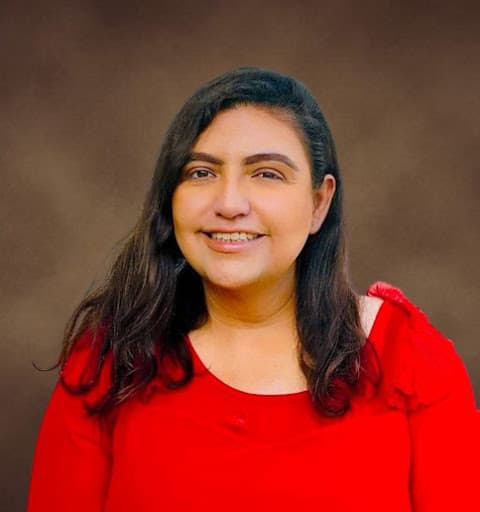
Mariel Cisneros (she/her) is a senior program manager leading architecture analysis and digital engineering for the research and advanced design organization as part of the aeronautics sector at the Northrop Grumman Corporation. In this role, Mariel oversees all the architecture and model-based systems engineering products across a wide portfolio of projects, ranging from advanced weapons, future battle management systems, and even space air integration for tomorrow’s battles. Mariel also serves as the Chief Architect for the NATO Alliance Future Surveillance and Control (AFSC) study, helping implement distributed military battle management capabilities across the allied world. Mariel brings a diverse perspective to her role from prior experiences on both air and space programs to guide the strategic vision for the future of the aeronautics projects. Mariel is an immigrant and proud first-generation graduate and holds a bachelor’s degree in electrical engineering technology from California State University, Long Beach, a master’s degree in architecture-enterprise based systems engineering from the University of California, San Diego, and several certifications from the California Institute of Technology. Mariel is an active and passionate DEI leader within the SWE and Northrop Grumman communities serving as the SWE Latinos Affinity Group Co-Chair, the SWE Orange County Section Outreach chair, the SATO Academy of Math and Science SWENext Counselor, the Northrop Grumman’s Mujeres Initiative External Relations Chair and the Women’s International ERG Enterprise Chair.

